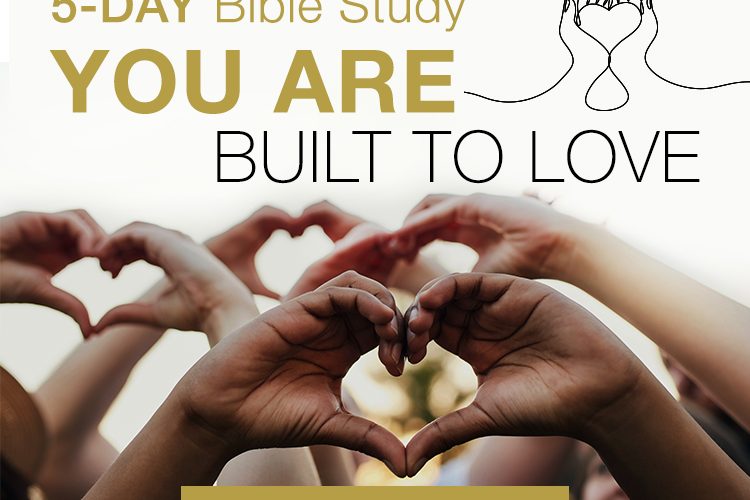 One of the most beloved passages about love in Scripture is 1 Corinthians 13. In verses 4-7, especially, Paul provides a blueprint of what love looks like in action.
One of the most beloved passages about love in Scripture is 1 Corinthians 13. In verses 4-7, especially, Paul provides a blueprint of what love looks like in action.
“Love is patient, love is kind. It does not envy, it does not boast, it is not proud. It does not dishonor others, it is not self-seeking, it is not easily angered, it keeps no record of wrongs. Love does not delight in evil but rejoices with the truth. It always protects, always trusts, always hopes, always perseveres.”
This key passage is one of several that you’ll understand, meditate on, and apply using our new free 5-day Bible study titled You Are Built to Love. Each day of the study walks you through a key biblical passage on love, explaining its meaning and significance for your life. You’ll learn the deep meaning of God’s love according to Scripture, gain insight into Jesus’ commands about love, discover how love leads to an abundant life, and much more. The following excerpt is a preview from this study on the passage noted above, 1 Corinthians 13:4-7.
The book of 1 Corinthians was written by the apostle Paul to the church in the Greek city of Corinth. In the chapter leading up to 13, Paul has been instructing the Corinthians about the nature and use of spiritual gifts, since there had been division in the church on this issue. One of the most important things about spiritual gifts, Paul has been saying, is to use them in a spirit of love (1 Corinthians 12). But even more important than spiritual gifts, he goes on to say in chapter 13, is love itself. In 1 Corinthians 13:4-7, Paul lays out in specific terms what agapē (divine) love looks like in practice, listing seven positive and eight negative characteristics. Let’s look at these characteristics in more detail.
Verse 4 — Paul begins with two positive aspects of love—patience and kindness. One scholar describes a patient person as being “‘long-tempered’—as opposed to being defensive or easily provoked. [Patience] does not rush to retaliation, but exercises self-control in trying circumstances.”
To show kindness is to be “actively engaged in doing good to others. It’s the picture of a person who spontaneously seeks the good for others and shows it with friendly acts.” Theologian and Nobel Peace Prize winner Albert Schweitzer once remarked that “constant kindness can accomplish much. As the sun makes ice melt, kindness causes misunderstanding, mistrust, and hostility to evaporate.”
While patience and kindness are focused on doing good to others, envy, boasting, and pride are self-focused in a negative way (there is a healthy sense of pride that rejoices in positive accomplishment [e.g., 2 Corinthians 7:4], but here Paul is referring to arrogant pride).
Verse 5 — As we’ve been observing, agapē love seeks the best for others, and as a result it “does not dishonor others” and “is not self-seeking.” And because it’s patient, as we saw in v. 4, it “is not easily angered.” This Christlike love provides the context we need to keep offenses committed against us in perspective. As one biblical commentator explains,
“If we truly love someone with the love of the Lord, we shall see their strengths and their potential rather than their quirks and their foibles. When they do or say something which angers us, we shall be able to treat that in the context of what they are in Christ, instead of magnifying what has happened so that it consumes our vision.”
To continue the lesson on 1 Corinthians 13 and gain insights into 4 more indispensable passages about love, visit our sign-up page here. You’ll receive immediate access to this inspiring study that will help you build the life of love you are meant to live!
Sign up now and receive immediate access to the life-changing study, You Are Built to Love, that will help you build an abundant life through love!
Deepen your study of the Bible when you become a member of Bible Gateway Plus. Try it right now during a FREE trial period!
The post What Is God’s Purpose for Me?: You Are Built to Love appeared first on Bible Gateway Blog.










